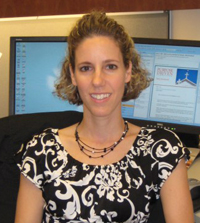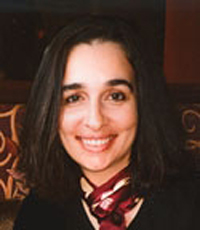 The statistics are jarring. More than 25.8 million children and adults in the United States—8.3 percent of the population—have diabetes. And predictions are that one in three people will have the chronic disease by 2050.
The statistics are jarring. More than 25.8 million children and adults in the United States—8.3 percent of the population—have diabetes. And predictions are that one in three people will have the chronic disease by 2050.
In addition to the toll on a person’s physical and emotional health, it’s also a costly disease, with more than $174 billion spent on diagnosed diabetes each year in the United States.
Vanderbilt University Medical Center is one of many institutions conducting groundbreaking research for the prevention and treatment of diabetes, thanks in part to a strong partnership with the American Diabetes Association, an organization working to fight the consequences of diabetes. The ADA has given about $1.7 million to Vanderbilt research during the current funding cycle.
Gifts can be made to the American Diabetes Association, which is affiliated with Community Health Charities of Tennessee, through Dec. 31, 2012.
“The current health care system is already taxed,” said Kristie Ryan, executive director of the Tennessee office of the American Diabetes Association. “Can you imagine what’s going to happen if one in three people have diabetes by 2050? It would be a significant burden on our society.
“The American Diabetes Association tries to address many aspects of diabetes. [rquote]Vanderbilt is a huge player in diabetes research and is highly respected in both research and the care of patients. Together, we hope we can stop that one in three,” Ryan said.[/rquote]
Over the past nine years, Alyssa Hasty, associate professor of molecular physiology and biophysics, has been receiving ADA funds for her research, beginning with a Junior Faculty Award and progressing to a prestigious Career Development Award, given to outstanding assistant professor-level faculty investigators in conducting diabetes-related research. Hasty’s lab is looking at how obesity, specifically heightened inflamed response in the adipose tissue (body fat), increases the risk for type 2 diabetes.

Her current ADA award focuses on what happens in the inflammatory response after bariatric surgery in mice. In addition, she has a Mentor-Based Postdoctoral Fellowship Award funding the work of visiting research fellow Arion Kennedy to determine how the immune system contributes to liver insulin resistance.
“The ADA has a primary focus on helping to develop the careers of new investigators,” said Hasty, who serves on the ADA Research Grant Committee. “The organization has been invaluable to my career and my lab. They are targeting many of their funds to junior faculty and post-doc fellowships. That’s where they are making a big difference, allowing young investigators to get their research up and running and allowing them to pay it forward and train additional students and post-doc fellows.”
Maureen Gannon, associate professor of medicine, molecular physiology and biophysics and cell and developmental biology, said the ADA is successful at targeting funds for under-funded critical areas. She received an ADA Mentor-Based Postdoctoral Fellowship Award and was able to hire Rockann Mosser, a post-doc scholar, in her lab. Gannon’s ADA-funded work has relevance to type 1 diabetes.

Gannon, who co-chairs the ADA’s Medicine, Science and Health Care Awards Committee, and Mosser are looking at the transcription factor, Fox M-1, and the role it plays in the regulation of beta cell mass. Her ADA-funded work has relevance to type 1 and type 2 diabetes.
The ADA-Vanderbilt relationship benefits the organization as well as the medical center. In addition to receiving research funding, several Vanderbilt faculty members—including Alan Cherrington, Jacquelyn A. Turner, Alvin Powers, Shubhada Jagasia and Vanessa Briscoe—serve on national committees for the ADA, hold ADA offices, and review and publish frequently in the ADA journal Diabetes. Vanderbilt faculty and staff also volunteer at local ADA-sponsored camps, such as Camp Sugar Falls, for children with diabetes.
How You Can Help
Consider a donation to the American Diabetes Association, an organization affiliated with Community Health Charities of Tennessee. CHC improves the lives of people affected by illness and chronic disease by connecting donors in the workplace with the state’s most trusted health charities to deliver credible health information, community-focused volunteer activities and efficient charitable giving.
Community giving is tax-deductible and continues through Dec. 31. Payroll deduction makes it easy to spread a gift out over 12 months, and deductions begin in January 2013. Visit the Vanderbilt Gives: Building a Community With Hope website for more information about giving options and to make your gift today.